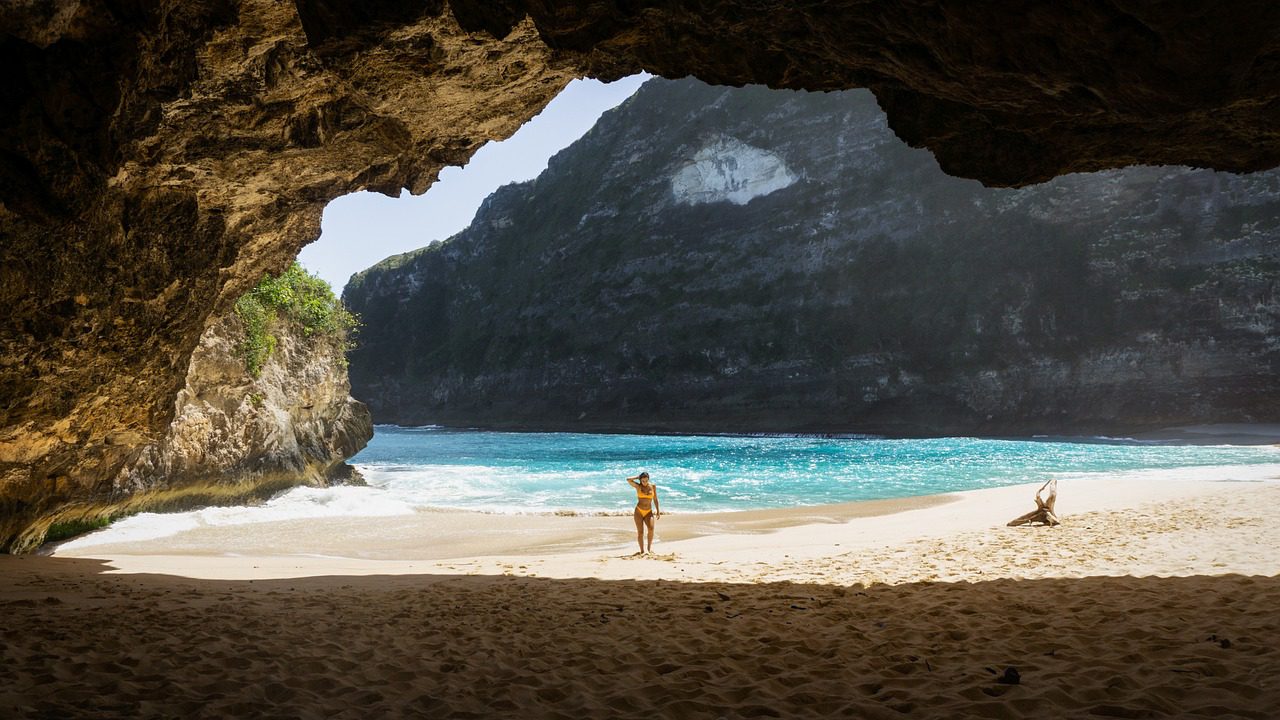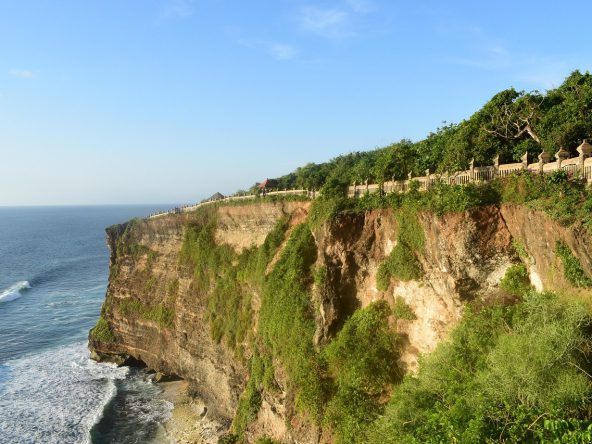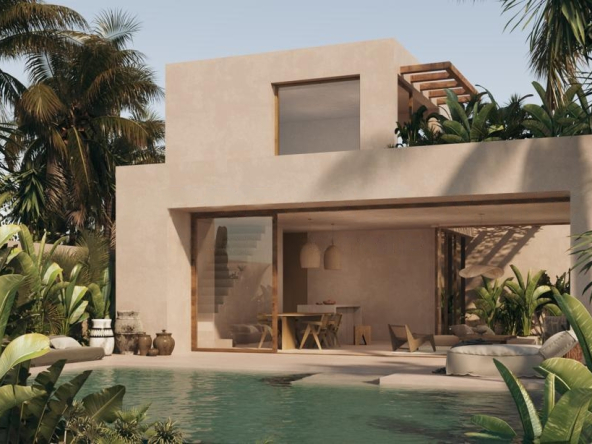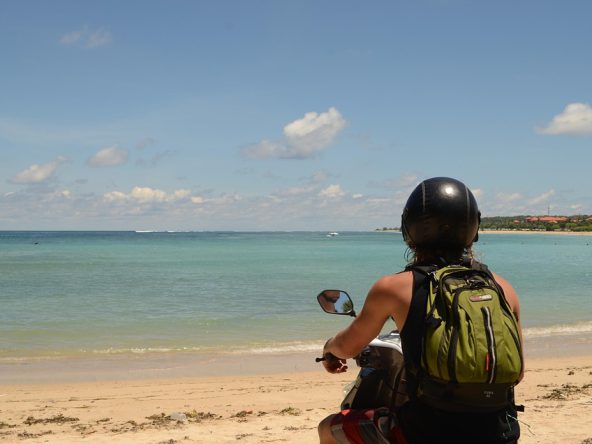Bali has always been a favourite holiday destination for Aussies. But more recently, it’s become much more than that. Over the past few years, more Australians have started to see Bali not just as a place to relax—but as a place to invest. And it’s not hard to see why.
As someone who helps Australians invest in Bali every day, I’ve seen first-hand what draws people in, what concerns they have, and what types of properties actually sell. Whether you’re thinking of buying your first villa or expanding your investment portfolio, this guide will break down exactly what Australian investors look for when investing in Bali.
1. Strong Rental Returns and Cash Flow
Let’s be honest—this is the big one.
Most Aussies buying in Bali aren’t doing it to live there full-time. They’re buying to rent it out on platforms like Airbnb or Booking.com and enjoy strong short-term rental returns. The potential rental yields in Bali can be significantly higher than what you’d get in Australia—often anywhere between 8% to 15% annually (gross), depending on location, management, and property type.
What Aussies look for:
- High occupancy areas like Canggu, Seminyak, Uluwatu, and Ubud
- Properties with a unique design or strong Instagram appeal
- Professional property management teams who can handle everything on the ground
- Flexibility for personal use – many Aussies want to stay in the villa themselves for a few weeks a year
2. Freehold vs Leasehold Ownership
Understanding the ownership structure in Bali is crucial. As foreigners, Australians can’t directly own freehold land in Indonesia. Instead, most investors buy property under a leasehold agreement—commonly 25 to 30 years, with options to extend.
Some investors partner with a local nominee for a freehold structure (known as Hak Milik), but this comes with legal risks and needs to be approached very carefully with legal advice.
What Aussies want:
- Clarity around leasehold vs freehold and how it affects their investment
- Long leases with clear extension clauses
- Legally sound agreements reviewed by reputable notaries
- Transparency—no hidden ownership traps
3. Ease of Property Management
The idea of owning a villa in paradise sounds great—until you realise someone needs to handle bookings, cleaning, maintenance, and guest communication. That’s why a huge percentage of Australian investors look for fully managed villas with a reliable team in place.
In most cases, Aussies don’t want to be hands-on. They want a “set and forget” investment.
What they value:
- Reputable villa management companies
- Clear monthly reporting and financials
- Maintenance handled without needing approval for every minor issue
- Multilingual teams who can cater to international guests
4. Legal and Tax Compliance
Many Australians ask, “Is it legal to buy property in Bali as a foreigner?” The short answer is yes—but only if you follow the correct legal structure. There are also Indonesian tax laws that apply to foreign property owners, particularly around rental income.
Investors are now smarter and more cautious—they want to know they’re doing things by the book.
What Aussies expect:
- Legal ownership structures that are defensible
- Registered leases and IMB/SLF building permits
- Help navigating Indonesian tax obligations
- Advice on how to structure income reporting back in Australia
5. Capital Growth Potential
While Bali isn’t known for huge capital growth the way Melbourne or Sydney might be, some areas are beginning to show signs of appreciation—particularly up-and-coming locations like:
- Pererenan (just north of Canggu)
- Seseh and Kedungu (near Tanah Lot)
- Nunggalan and Bingin in Uluwatu
Most Aussie investors understand this isn’t a “flip in 2 years for a profit” market—it’s more about steady income and long-term potential.
What they look for:
- Emerging areas with future infrastructure plans
- New tourism hotspots that aren’t oversaturated
- Modern builds with contemporary design that holds value
6. Affordability Compared to Australia
Let’s not forget cost.
In Australia, $500,000 might get you a one-bedroom apartment in an inner-city suburb—if you’re lucky. In Bali, that same budget could get you a stunning 2-3 bedroom private pool villa in a prime area, fully furnished, and ready to rent out.
The lower entry point is a major drawcard.
Aussie investor mindset:
- “I can’t afford to invest in Melbourne or Sydney anymore.”
- “I’d rather buy something I can use and rent out than hold an empty block in the suburbs.”
- “It feels like value for money.”
7. Lifestyle and Personal Use
Many Aussie buyers want the best of both worlds: a property that makes money, but also somewhere they can enjoy personally.
For this reason, dual-use villas are super popular—properties that perform well on Airbnb but also feel like a second home.
Typical wishlist:
- Private pool
- Fast Wi-Fi and work-from-home spaces
- Modern kitchens and bathrooms
- Outdoor entertaining areas
- Proximity to cafes, surf beaches, and yoga studios
The dream? A property that pays for itself and gives you free holidays.
8. Developer Reputation and Build Quality
Australians are becoming more educated about construction risks in Bali. From poor drainage to dodgy materials, a cheap build can cost you big down the track.
That’s why off-plan buyers now want to work with reputable developers—ideally with a proven track record and projects they can inspect.
Key concerns:
- “Will this villa still look good in 5 years?”
- “Is the developer using quality materials?”
- “Are there proper warranties or post-construction support?”
- “Can I trust the builder to deliver on time?”
If you’re buying off-plan, always do your homework. Better yet, ask for references from past Aussie buyers.
9. Exit Strategy
Whether you’re buying with a 5-year plan or thinking long-term, every investor should consider: What happens when I want to sell?
Unlike Australia, selling leasehold properties in Bali isn’t always straightforward. Market demand, remaining lease term, and marketing exposure all play a role.
What Aussies want to know:
- “How easy will it be to resell?”
- “Can I extend the lease before selling?”
- “What’s the resale demand like for foreigners?”
- “Are there agents who can market this to other Aussies?”
Properties in highly desirable areas with 20+ years left on the lease are easier to resell. Villas in remote or saturated areas can be tougher.
Investing in Bali isn’t the same as buying in Brisbane or Bondi. The rules are different, the market behaves differently, and the risks are real. But so are the rewards.
If you take the time to understand the market, work with trusted professionals, and approach the process with your eyes wide open, investing in Bali can be an incredibly rewarding experience—financially and personally.
As more Australians look beyond our borders for investment opportunities, Bali continues to stand out. It offers something most markets can’t: high returns, low entry cost, lifestyle perks, and future growth.
If you’re considering taking the leap, make sure you get local advice, connect with a trusted team on the ground, and invest with purpose.
Need help finding the right investment in Bali?
At www.balirealestate.com.au, we specialise in helping Australian buyers navigate the Bali property market with confidence. Whether you’re looking for a high-yield villa, a holiday home, or a long-term investment, we’re here to guide you every step of the way.




